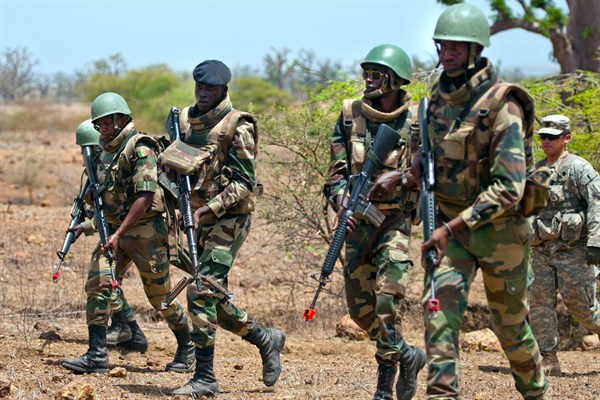U.S. military forces are taking a more active role in combating the Boko Haram insurgency that has killed more than 30,000 people since its outbreak in 2009 and spread from northeastern Nigeria to neighboring Cameroon, Niger and Chad. The move is consistent with the general U.S. approach to security on the African continent, which leans heavily on enabling local forces to combat terrorist groups, but which has failed to stem a rise in Islamist violence in recent years.
President Barack Obama notified Congress in mid-October that he had ordered 300 military personnel into northern Cameroon to support reconnaissance flights of MQ-1 Predator drones. U.S. troops will also work with local forces on intelligence gathering and analysis, as well as “enabling operations, border security and response force capability,” according to an unnamed defense official quoted by Voice of America.
Hans De Marie Heungoup, the Cameroon analyst for the International Crisis Group, says that the actual mission of the U.S. operation likely extends beyond monitoring and responding to Boko Haram activities. “They will also cover different activities near the Gulf of Guinea,” he says, based on input from Cameroonian military sources. The Gulf of Guinea is a hotbed for piracy and smuggling activities, as well as one of the most oil-rich areas in the world.

